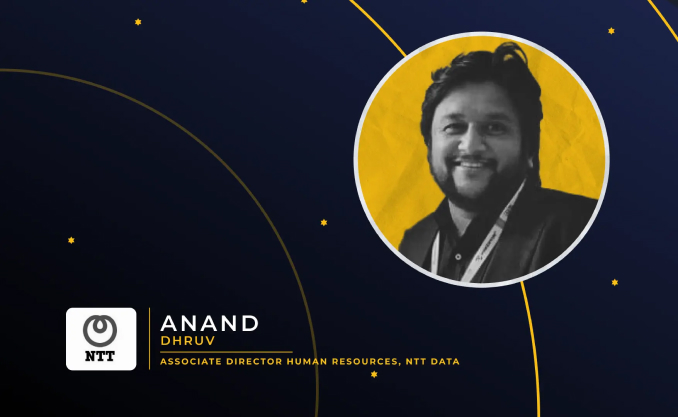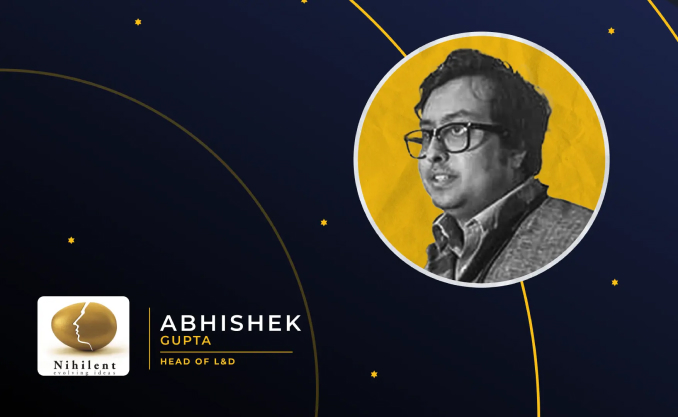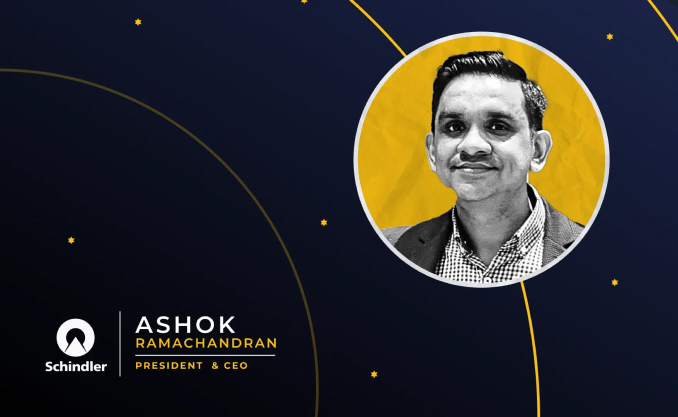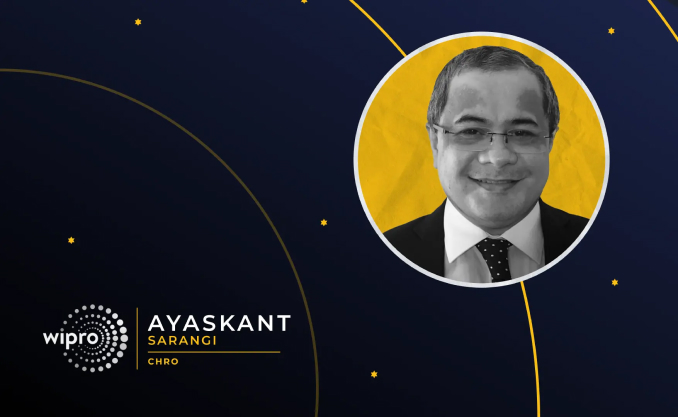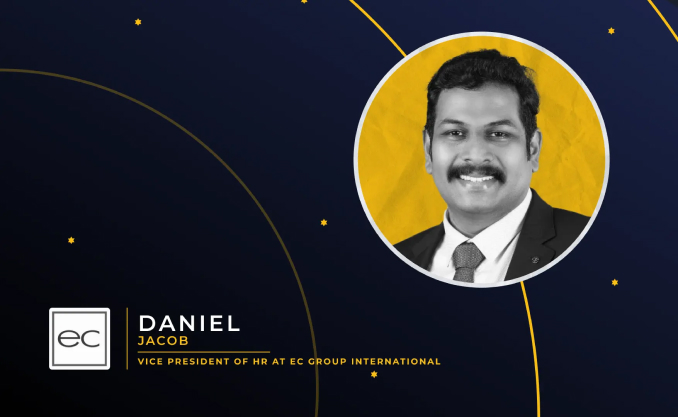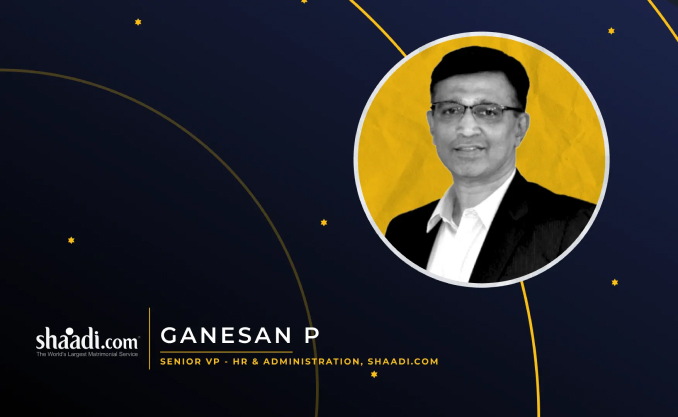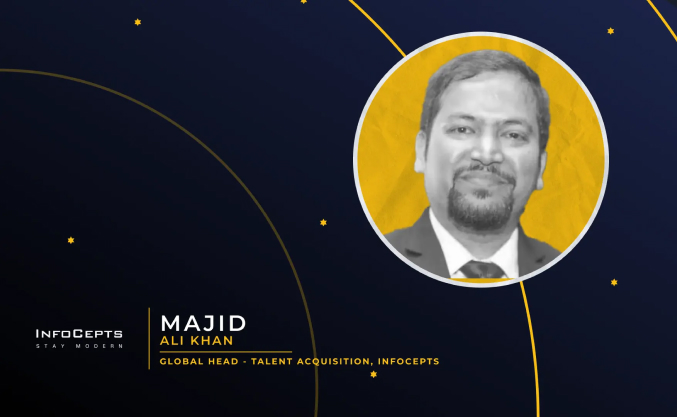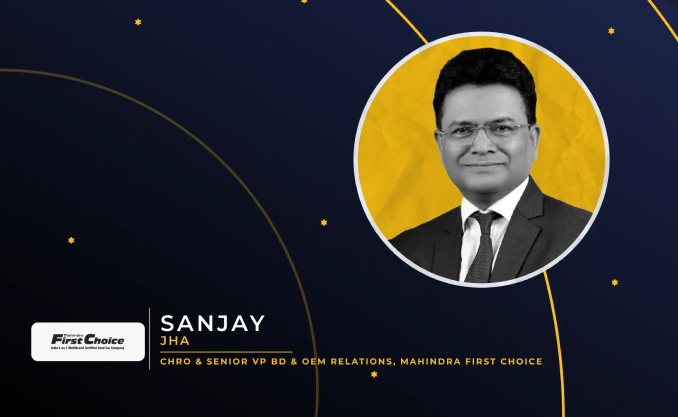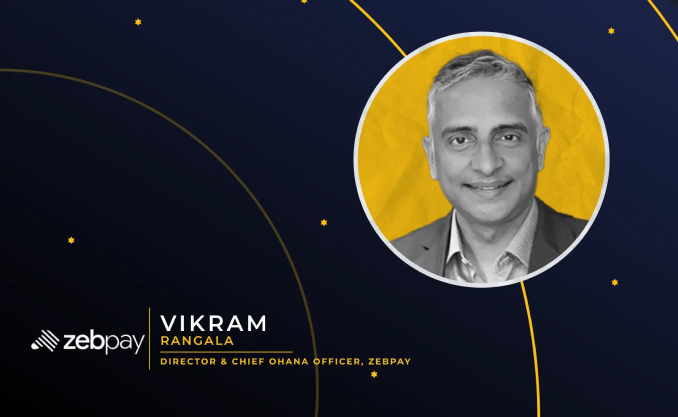Anand Dhru is an HR professional with about 20+ years of experience and someone who is blessed with wonderful communication skills.
In this era of quick learning, unlearning, and relearning skills, Anand points out how technology has played a great role in changing the entire learning perspective.
Anand is a true believer in the philosophy of the ability to learn, unlearn and relearn. He also claims it is essential, especially given how the times are changing.
Let’s start with a small introduction from your side.
Something which I think I’m being blessed with and that has worked well for me is my connection with people. I am somebody who would love to connect with people. As an HR, the first thing I think of every HR professional or anybody who wants to make their career in HR is that he or she should have the ability along with a willingness to connect with people.
Because according to me what HR makes or breaks is the soul of the organization.
They are not only the intermediary between the employee and the employer, but they act as a nerve system. They supply blood and oxygen to the entire organization. So, I am somebody who is blessed to have had that wonderful conversation. And at the same time, thanks to the Pandemic, in the last two and a half years, even a lot of virtual conversations helped us to connect with our employees and other people.
About Anand Dhruv
So, to introduce myself, I am somebody who loves to connect with people.
And I strongly believe in the philosophy of the ability to learn, unlearn and relearn.
And today’s times are quick. You can’t be fixing yourself only to one. In today’s era, you need to unlearn quickly because things are changing so fast. Especially during this pandemic experience, we never thought of the way things would work out. I still remember initially when somebody used to come to me and say I worked from home and the perception which I had was nobody’s going to work from home, it’s just weekly off or you’re going to just be there chilling. But today I understand now the times have changed.
So, time is the best thing that has made us learn the concept of learning and unlearning. As a professional, I carry 20 blessed years of experience, working with wonderful people, and wonderful bosses who not only made whoever I am but at the same time shaped me guided me, and helped me to grow up the ladder. This is all about me in a shell as a person. I love to travel as well.
I think one thing that is very true in the current day and age is to at least learn unlearn and relearn quickly things. Given all the things and how things change. How do you see the last two years in retrospect?
When it comes to flexibility, one of the elements which I’ve developed as a manager, is you should be on good terms with your team so that you can get your work done. But at the same time, you need to be agile and flexible so that your teams can connect with you much better. Especially when it comes to acceptance from a global perspective, as I still remember, challenges were working from different time zones. Again, one of the perceptions which got changed over the period in the last two and a half years, is that earlier, whenever we used to talk about different time zones, we had that glitch that we won’t be able to coordinate and work well as a team. At the same time, the leverage and the kind of acceptance and usage of technology are what gave us a push.
Like in my case, I am not a very tech-savvy person, but working in telecom and technology, people assume that I’m a very tech person, but no, I have learned from scratch, with a little bit of my experience in training delivery and telecom sector, a little bit of technology, and now with my technical associations with organizations, has helped me to learn. So, this pandemic has made us tech-savvy. Today, through the medium of different technology, we can deliver sessions all across the globe. These are a few things that have helped us and made us more agile, flexible, and accommodative to be specific on the current experience, and then everything is reactive. Nothing is proactive.
It is only after experiencing the pandemic and being COVID-positive ourselves, things have changed and we learned the lesson the hard way. Nevertheless, I’m very happy with the current scheme of thought because today we have become more flexible and accommodating and this has helped us professionally and personally to be able to achieve a little more. So, these are the few positive aspects of learning about pandemics. All of them are reactive, and none of them are proactive.
And that’s something which we as individuals, as professionals need to learn from mistakes.
What are the few things that you as a leader do in the world of HR to make sure that the new members of the team feel that they are part of the team?
When we started we were not sure how long this is going to be. So initially I had the biggest problem with my current role of heading the talent development vertical L&D, which is learning and development, which takes a lot of my time. And induction is something that we drive personally. And I am somebody who loves to interact with joy, with the newcomers coming on board.
So, there are certain elements the classroom training cannot be substituted with over twelve months. I was not sure how things would work out but let me tell you, after using the technology and having a series of conversations with the new joiners and my team; slowly the confidence got in, the confidence developed and we were able to cater to our newcomer’s new choices requirements smoothly and today we are functioning in a hybrid environment. So just from the last two months, they have again restarted the induction into the classroom whereas the other training and the other development initiatives can happen in a hybrid model where somebody can travel in person, somebody who cannot travel to all the remote locations are connected over the virtual means but yes, we have now restarted the training and particularly from a new joiner’s point of view it is very important because that’s how you make the person comfortable in your organization.
So yes, initially there were a lot of glitches, and a lot of issues we were also not sure whether we’ll be able to do this in a virtual platform but as I mentioned, slowly and gradually we got used to it. So today we all are working on the hybrid platform. But gradually, in the last two and a half years, we all have worked and today things are running smooth.
Do you think that hybrid is the way to go in the future?
Absolutely. Because today when I interview anybody, the first thing they question is what the work model is. Is it completely work from home, it’s a hybrid or it’s on-site? The moment we say on-site 24/7, the first thing they say is sorry sir, I’m not interested. Even today from employment, very few people prefer it for various reasons and there is no denying that. Because at the end of it, the most important factor for any employment is the location of your work. If you’re comfortable, you will be able to learn better. If not, then obviously six months, five months, or one year down the line, your motivation levels will go down and one fine day you will decide to pass. Hybrid is hence the new normal.
The economic downturn is impacting talent development as well as talent acquisition. I would love to hear your thoughts on it.
Talent has always been a critical problem, irrespective of whatever industry we belong to, whether the economy is very high, or very low, irrespective of that, getting the right talent is a problem. And to add to it, getting the right talent at the right time is equally important. Today there’s a lot of talent available, but at the same time, the challenge is that you are not able to take them on board. And we are very clear that you have to complete your notice period.
Irrespective of the economy, these are two, or three things that impact the lives of every recruiter, and the life of every HR. And that’s what our leadership team was all about. Because on the first day itself our CEO was very clear and he made this commitment over a town hall which addresses all the employees saying that irrespective of whatever the economies are, none of my employees will be asked to go or there will be a pickup increment we will take care of.
These are the few impacts on a commercial angle that has a very strong impact on the hiring cycle of the people management business. But as I mentioned, a good organization or a good leader is somebody who takes the people along, and whatever the circumstances are, positive, or negative is communicated and shared with us.
I’m not saying don’t join if you don’t want to join, just communicate, and let us know in advance. Don’t make a last-minute decision. The last-minute no-show is something that I do not like about anybody.
So, I have these names ready at the moment. For example, you are one of them who has bid me or who has not joined us. Even if you meet me after 20 years, a month, I will be able to relate to it. I will remember your name saying that, yes, you are the one who did not join us. I’m somebody who believes in it. And if you’re committed, please do value that.
Companies are investing heavily in the training of individuals. Do you also see that in the times to come, nurturing and development are going to play much more because you're watching them?
When we talk about nurturing or developing talent, one thing which comes to my mind straight away is the employee lifecycle. And that’s not something that I would recommend all my HR friends and everybody in the industry to tweak or redesign or restructure that current development initiative.
While cross-cultural, developing them, cross-selling all these additional skill sets, developing them overall, focusing not only on technology, but the overall development of the employee is something which I’m sure every organization currently is working towards, but they are failing to understand the employee lifecycle. Hence it is very important that we strongly believe in having different flavors of not only training but the overall development of our employees, understanding the lifecycle where they are in the current level or the stage in the organization.
I am a strong supporter of coaching and mentoring. There are certain elements of coaching and mentoring which are L&D or classroom training or virtual training that will not address. Similarly, ensuring that there are mandated training hours for every individual in the organization so that they genuinely invest their time and they can develop their skill sets. There are also certain compliance training which as a company we need to follow like prevention of sexual harassment of women in the workplace and other security-related training.
So, we ensure that we have a process in place which ensures that these training are completed and you’ll be shocked to hear that even as the HR we go through our product training. When I was a part of telecom lot of product knowledge training was required.
So, learning and development are something that goes with you; so the learning never stops. I feel and believe that we learn until the last breath.
And hence I said, based on the employee lifecycle, different wonderful initiatives can be taken into consideration when it comes to people development and developing the table.
What would be the few pointers that you would give to those just entering the field of HR that would directly apply to people who are now thinking about building a great career and resource?
Being flexible to change is something that I would recommend to all those who are entering this field of HR. If I would have registered to say that, no, I don’t want to be a part of corporate HR, I am always a training guy, let me make my career into training. So that is something which I think as a youngster, I would want to appreciate people to be flexible and adapt to changes quickly.
Secondly, do not say no to anything. Whether you get successful or you learn, you never fail.
So, yes, one of the USPs I would mention in my book, would be my ability to not say no is something I have, but yes at the same time, if it is not in your jurisdiction, there’s a polite way of saying no to it. But as a fresher, I would expect them to accept challenges, take challenges, give their commitment, be flexible, learn, and ask questions. If you are not convinced, do not accept because your boss or somebody has told you.
So, these are a few things which I would suggest to all youngsters who want to make their career in HR and be the subject matter expert. If you’re very sure which particular field in HR, you want to make your career in, try to be the subject matter expert in that particular option because people look forward to you.
And last but not the least, have that passion to connect, engage, to be around people. Because people management is all about people.
So, these are a few things that you need to be passionate about if you want to make your career in HR, else HR is not your cup of tea.

